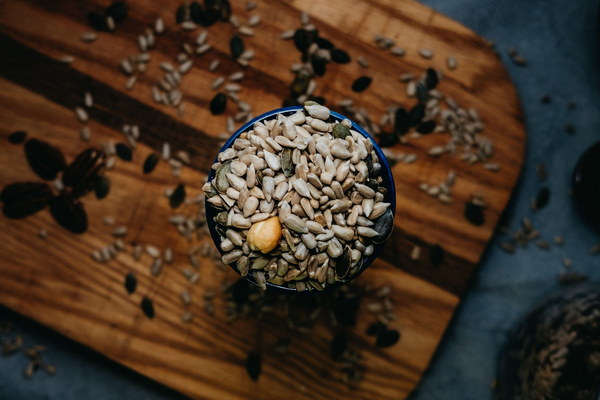Can Children Protect Their Liver A Comprehensive Guide to Liver Health in Kids
In recent years, there has been a growing concern about the health of children, particularly when it comes to liver function. The liver is a vital organ responsible for detoxifying the body, metabolizing nutrients, and producing bile to aid in digestion. With the increasing prevalence of childhood obesity, poor diet, and environmental toxins, it is crucial to understand whether children can protect their liver and how they can do so. This article delves into the topic of liver health in children, exploring the importance of liver function, common liver issues in kids, and practical steps to promote liver health.
The Importance of Liver Function in Children
The liver performs numerous critical functions that are essential for a child's growth and development. These include:
1. Detoxification: The liver filters out harmful substances, such as drugs, alcohol, and environmental toxins, from the bloodstream.
2. Metabolism: It helps break down nutrients from food, such as carbohydrates, proteins, and fats, to provide energy.
3. Storage: The liver stores vitamins, minerals, and glucose, which are released into the bloodstream when needed.
4. Production: It produces bile, which aids in the digestion and absorption of fats.
Given the liver's multifaceted role, it is essential to ensure that children maintain healthy liver function to support overall health and well-being.
Common Liver Issues in Children
While liver disease is relatively rare in children, there are several conditions that can affect the liver, including:
1. Viral hepatitis: Infections caused by hepatitis A, B, or C can lead to liver inflammation and damage.
2. Non-alcoholic fatty liver disease (NAFLD): A condition often linked to childhood obesity, NAFLD occurs when fat accumulates in the liver.
3. Alagille syndrome: A genetic disorder that affects the bile ducts, leading to liver scarring and potential liver failure.
4. Alpha-1 antitrypsin deficiency: A genetic condition that can cause liver and lung disease.

It's important for parents to be aware of these conditions and to recognize the signs and symptoms, such as jaundice, abdominal pain, fatigue, and unexplained weight loss, which may indicate a liver issue.
Steps to Protect Children's Liver Health
Thankfully, there are several ways children can protect their liver health:
1. Balanced Diet: Encourage children to consume a variety of fruits, vegetables, whole grains, lean proteins, and healthy fats. Limit processed foods, sugary drinks, and excessive consumption of fast food.
2. Regular Exercise: Physical activity helps maintain a healthy weight and improves overall liver function. Aim for at least 60 minutes of moderate to vigorous exercise daily.
3. Hygiene: Teach children the importance of handwashing to prevent the spread of viral hepatitis and other infections.
4. Avoid Alcohol: Although children are not typically at risk for alcohol-related liver disease, it's essential to teach them about the dangers of alcohol early on.
5. Limit Exposure to Toxins: Reduce exposure to harmful chemicals by using natural cleaning products, avoiding secondhand smoke, and ensuring proper ventilation in the home.
6. Regular Check-ups: Have children undergo routine health screenings, including liver function tests, to detect any potential issues early.
Conclusion
Children can indeed protect their liver health by adopting a healthy lifestyle. By focusing on nutrition, physical activity, and awareness of potential risks, parents can help ensure their children maintain a healthy liver for years to come. Remember, early detection and intervention are key to preventing liver disease in children, so it's crucial to be proactive in promoting liver health.









